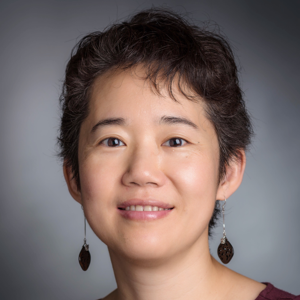
X Shirley Liu, PhD
X Shirley Liu received a Ph.D. in Biomedical Informatics and a Ph.D. minor in Computer Science from Stanford University in 2002. She has been Professor of Biostatistics and Computational Biology at Harvard University and the Director of the Center of Functional Cancer Epigenetics at Dana-Farber Cancer Institute until 2022. Her research focuses on algorithm development and integrative mining from high throughput genomics data to understand gene regulation and therapy response in cancer.
In computational biology, her laboratory developed widely used algorithms and tools for transcription factor motif finding, ChIP-chip/seq, chromatin accessibility profiles, CRISPR screen analyses, and tumor immune characterization. Many of her algorithms helped the community adopt new genomics technologies.
In transcription and epigenetic gene regulation, Dr. Liu has been a pioneer in using chromatin dynamics to predict trans-factors and cis-elements involved in biological processes and diseases. As a member of the mod/ENCODE consortium she helped establish best practices in ChIP-chip/seq. She and colleagues generated the first high throughput nucleosome map in the human genome, and identified the chromatin signature of embryonic pluripotency. Her work significantly advanced the understanding of the roles of many transcriptional and epigenetic regulators and cis-elements in cancer.
In translational cancer research, Dr. Liu contributed to the discovery of drug response biomarkers, drug resistance mechanisms, and effective combination therapies. Through analyses of large-scale compound and genetic screens as well as tumor profiling cohorts, her group revealed the functions of steroid hormone therapies, epigenetic inhibitors, gamma secretase inhibitor, receptor tyrosine kinase inhibitors, and immune checkpoint inhibitors in different cancers.
Dr. Liu is the principal investigator of the Cancer Immune Data Common, a cancer moonshot project from National Cancer Institute with the goal of identifying biomarkers for optimizing cancer immunotherapy strategies. She is a fellow of the International Society of Computational Biology (ISCB), and a Breast Cancer Research Foundation Investigator. She is a recipient of the Sloan Research Fellowship, Weitzman Outstanding Early Career Investigator Award from the Endocrine Society, ISCB 2020 Innovator Award, and the 2020 Benjamin Franklin Award for Open Access in the Life Sciences. She left DFCI / Harvard to become the CEO of GV20 Therapeutics on 2/1/2022.